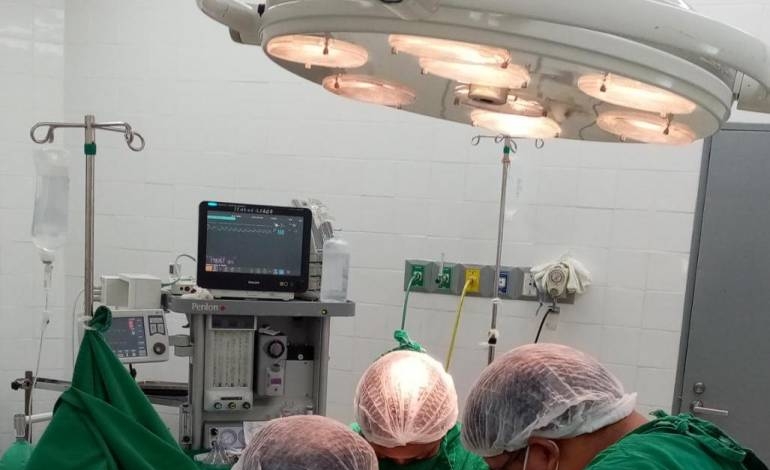A high court on Monday decriminalized abortion in Colombia up to the 24th week of pregnancy, an unprecedented ruling for this country with a Catholic majority that places it at the forefront among the Latin American countries that released this practice.
With the ruling of the Constitutional Court, women will be able to decide on the interruption of pregnancy for any reason until the sixth month of gestation without being punished for it.
Until now, abortion was only allowed in the case of rape, if the mother’s health was at risk or when the fetus had a malformation that compromised its survival, according to a 2006 ruling from the same court that contemplated conscientious objection for doctors. who did not want to interrupt pregnancies.
Apart from these exceptions, both women and those who carried out the procedure with their consent were punished with sentences of 16 to 54 months in prison.
From now on, the “conduct of abortion will only be punishable when it is carried out after the twenty-fourth (24) week of gestation,” the Constitutional Court said in a statement.
After six months of pregnancy, the conditions already set by the court will continue to apply, the magistrates explained.
Hundreds of protesters, mostly women wearing green scarves, celebrated the decision outside the building where the court deliberates in Bogotá.
“Colombia remains at the forefront of reproductive rights both regionally and globally,” lawyer Catalina Martínez from the Just Cause movement told AFP, demanding that the crime of abortion be unconstitutional and whose arguments were studied by the high court.
The country becomes the fifth in Latin America to decriminalize abortion and one of the most flexible in the term to carry it out.
Argentina allows it up to week 14 and in Mexico it is authorized up to 12 weeks in the State of Oaxaca (south), Veracruz (east), Hidalgo (center) and Mexico City. Uruguay also guarantees it up to 12 weeks, as well as Cuba and Guyana, which contemplate exceeding this period in some exceptions.
The body ruled by five votes in favor and four against the controversy surrounding the voluntary interruption of pregnancy, in a country with a Catholic majority and where the Protestant Christian churches exert great influence.
Crime
“After the right to vote, this is the most important historical achievement for life, autonomy and the full and equal realization of women,” the mayor of Bogotá, Claudia López, wrote on Twitter.
According to information collected by Just Cause, since 1998 around 5,500 abortion investigations have been initiated and of those, as of 2005, around 250 women have been convicted.
For its part, the feminist group Mesa por la Vida y la Salud de las Mujeres points out that between 2006, when partial decriminalization was approved, and 2019, 346 women have been sanctioned, of which 85 were minors.
According to the prison authority, 24 women are in prison for having an abortion.
“The existence of the crime of abortion is the main barrier imposed directly by the State itself that prevents full access to the right to IVE (voluntary interruption of pregnancy), health, equality, freedom of profession and trade , freedom and conscience, among other fundamental rights,” the plaintiffs alleged to the Court.
The court urged Congress and the government to “in the shortest possible time, formulate and implement a public policy” that regulates abortion.
prolife
The Catholic Church rejected the flexibility of access to abortion.
“We are called to consistently respect life from gestation to natural death,” declared the president of the Colombian Episcopal Conference, Monsignor Luis Rueda.
Some critics, calling themselves “pro-life”, protested outside the Court and waved blue flags, while others prayed on their knees.
“It’s a decision that goes against life, against the family,” Marlene Herrera told AFP with a rosary around her neck.
Women denounce all kinds of obstacles to access the procedure, even under the three grounds allowed for 15 years.
Among the difficulties they allege are the delays in the authorization of abortion by health centers and the conscientious objection of some doctors who refuse to perform it, which pushes many of them to clandestine procedures.
No organization dares to give a credible figure on how many illegal abortions are performed in the country. A 2014 study by the Ministry of Health estimates that 70 women die and 132,000 suffer complications annually from “unsafe abortions.”
Conservative President Iván Duque, who defines himself as “pro-life” and against abortion, has not yet ruled on the matter.











